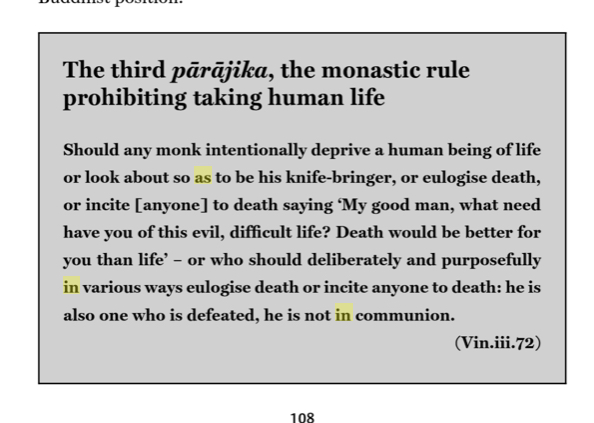Ven. Bhikkhu Bodhi
Article says the following,
I’ll take the two stereotypes in order, and begin with the ancient arahants. Although the Buddha was the pioneer in discovering the path to liberation, this does not mean that his arahant disciples just selfishly reaped the benefits of the path and did nothing for others. To the contrary, in the suttas we can see that many of them became great teachers in their own right who were capable of guiding others towards liberation. The best known among them are Sāriputta, Mahākaccāna, Moggāllana, and Ānanda. There was the monk Puṇṇa who went to the barbarian Sunāparanta country, risking his life to teach the Dhamma to the people there. There were such nuns as Khemā and Dhammadinnā, who were outstanding preachers, Paṭācārā, who was a master of the discipline, and many others. For four hundred years, the Buddhist texts were preserved orally, transmitted from teachers to pupils, and obviously there had to be thousands of monks and nuns who dedicated their lives to learning the texts and teaching them to pupils, all for the purpose of preserving the good Dhamma and Vinaya in the world.
The example established by the Buddha’s great arahant disciples has been the model for the followers of the arahant ideal throughout history. While those who pursue this ideal do not make such lofty vows as do followers of the bodhisattva ideal, they are inspired by the example of the Buddha and his great disciples to work for the spiritual and moral uplift of others to the best of their ability: by teaching, by example, and by direct spiritual influence, inspired by the Buddha’s command to “wander forth for the welfare of the multitude, for the happiness of the multitude, out of compassion for the world, for the good, welfare, and happiness of devas and human beings.”
The life pattern of a follower of the arahant ideal conforms in many respects to that of the Buddha. I take as an example those who may not have actually achieved arahantship itself but are practicing within this framework and have reached some higher stage of spiritual accomplishment. In the early part of their lives, they may go to a forest monastery or to a meditation center to train under a competent teacher. Then, after reaching a sufficient level of maturity to practice on their own, they will go into solitude to develop their practice for a period that might last five years or longer. Then, at a certain point, their achievements will start to exert an influence on others. They might start to teach on their own initiative, or their teacher might ask them to begin teaching, or prospective students might realize they have achieved some superior state and request guidance from them. From this point on, they will begin to teach, and in time they might become well respected spiritual teachers, with many disciples and many centers under their guidance.
https://www.accesstoinsight.org/lib/authors/bodhi/arahantsbodhisattvas.html
I got this also in Bhikkhu Bodhi book, here an example of Sāriputta helping others reach the final goal.


 i meant I myself not sharing anymore. My last qoute was the cherry on the pie. Keep sharing. All the best
i meant I myself not sharing anymore. My last qoute was the cherry on the pie. Keep sharing. All the best